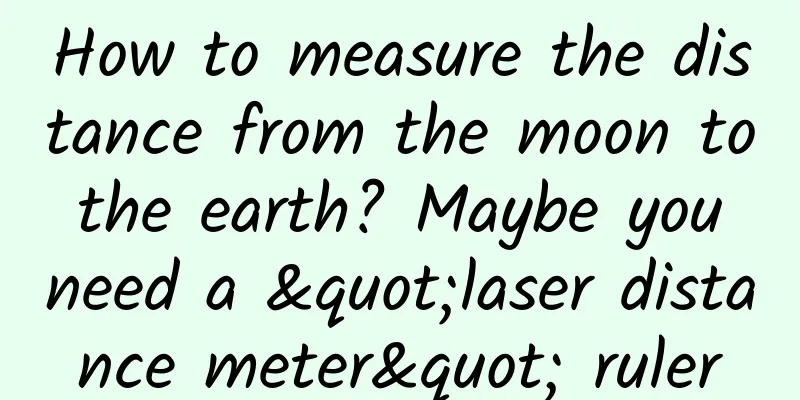Interesting Talk: Can Time Travel Prolong Life? Scientific Interpretation: It's Just an Illusion

|
We often see such descriptions on the Internet: in high-speed spacecraft, especially in spacecraft close to the speed of light, the clock will slow down, so people's life span will be extended. When a person who travels in a spacecraft close to the speed of light returns to Earth, his grandchildren will be octogenarians, while he himself is still young; even the Earth has changed a lot, and millions or even billions of years have passed. Therefore, the person who returned from the trip seemed to have his lifespan greatly extended or even achieved immortality. Is this really the case? These answers to longevity are still unverifiable and are only inferred based on the time dilation theory in Einstein's special theory of relativity. But strictly speaking, this has been verified from satellite positioning and hadron colliders. However, the time dilation effects verified in these experiments are all within milliseconds, which means that it is very difficult to slow down time by even one second. This is because the speed of what humans are currently manufacturing is still very slow. The fastest spacecraft, the Parker Solar Probe, can only reach a maximum speed of about 200 kilometers per second through the gravitational slingshot effect, which is only 0.00067 times the speed of light. The time dilation effect can only be clearly felt when it is close to the speed of light. According to Einstein's time dilation effect formula, when the speed reaches 0.5 times the speed of light c, the time dilation effect is 1.15 times, which means that it will be 0.15 times slower than the relatively stationary reference frame; when the speed reaches 0.9 times c, the time dilation effect is 2.29 times; when the speed reaches 0.99 times c, the time dilation effect is 7 times. For every two 9s after the speed approaches the multiple of the speed of light, the time dilation effect increases by a factor of 10. For example, when the speed is 0.9999 times c, the time dilation effect is 70 times; when the speed is 0.999999 times C, the time dilation effect is 707 times; and when the speed is 0.9999999999999999, the time dilation effect is 7.07 million times. That is to say, one year of traveling in a spaceship that reaches 0.999999999999999 times the speed of light is equal to 7.07 million years of Earth time. If the person was 35 years old when he set out, he would be only 36 years old when he returned after one year of travel, and 7.07 million years would have passed on Earth. If he had children when he set out, not only would he not see them when he returned, but his descendants would also have disappeared long ago. Perhaps the Earth would have already dried up and become a dead and barren land. So did the traveler live longer? That depends on how you understand it. If we compare the two reference frames, the traveler seems to have lived 7.07 million times longer than the Earth. If the traveler spent one year in the spaceship, 7.07 million years would have passed on Earth; if he spent 10 years, 70.7 million years would have passed on Earth; if he spent 20 years, 140 million years would have passed on Earth. But in fact, did the traveler really live longer? No. Because he was just living in such a reference system with a relatively slow clock. If he didn't compare it with the reference system of the earth, he would not feel longevity at all. In that high-speed space, he still felt that 1 second was 1 second, 1 hour was 1 hour, 1 day was 1 day, and 1 year was 1 year. Not only does his consciousness feel this way, but his body, every cell and DNA also feels this way. If he can live to be 100 years old on Earth, he will still slowly grow old in the spacecraft until he dies at the age of 100. Moreover, due to the harsh travel environment in space, he is likely to live less than 100 years old. Therefore, in this sense, his high-speed travel, or time travel, did not bring him longevity, but he just felt like this after returning to Earth: one day in heaven is a thousand years on earth. Therefore, his longevity is just an illusion. Fundamentally speaking, he is not long-lived at all. What do you think about this? Welcome to discuss. This is an original article from Space-Time Communication. Please respect the author’s copyright. Thank you for your understanding and support. |
<<: Popular Science Illustrations丨What surprises does Shenzhou 16 have?
>>: Beware! Chronic fatigue syndrome may bring big trouble! Check to see if you are affected →
Recommend
A must-read list for operators in 2018! !
Unconsciously, 2017 has come to an end. What kind...
Rains at the turn of spring and summer bring forth all kinds of grains. What is the significance of “Gu Yu” to agricultural production?
April is halfway through, and the weather is gett...
Using this method, promotion costs can be reduced by 50%!
When doing marketing promotion or researching use...
Do you always sigh at work? Congratulations, you have mastered a new way to relieve stress
"well!!!" I don't know since when, ...
Alipay launches a wave of new features: it is completely indispensable
[[283052]] On September 24, at the Alibaba Invest...
Revealing the truth about not being able to grab red envelopes on Alipay, it's heartbreaking to read
On February 11, 2015 , Alipay distributed red env...
Lack of creativity and inspiration in operations? Just "get on" them!
Operations, like the brand market, have high requ...
10 apps removed from shelves by the Ministry of Industry and Information Technology! They are peeking at your photo albums
Last month, the Ministry of Industry and Informat...
The hero's end: Sony laptops sold at 50% discount by dealers
"Sony laptops are giving back as a token of ...
World premiere! This ultra-thin lens weighing 2.7 grams will bring you into a magical new AR world!
With the rapid development of science and technol...
The best things in life happen when you are alone
Leviathan Press: Being alone forces you to think ...
Why can’t my Baidu bidding idea pass the review?
Bidding promotion work is rather boring, but also...
How can video websites continue to play the card of self-produced dramas after the first year?
2014, which was called the "first year of sel...
Former LinkedIn boss Zhang Ximeng: The era of using large amounts of money to buy traffic is gone!
Zhang Ximeng Silicon Valley big data analysis and...
Why is the conversion rate so low?
"What would you like to drink? I want Coca-C...









